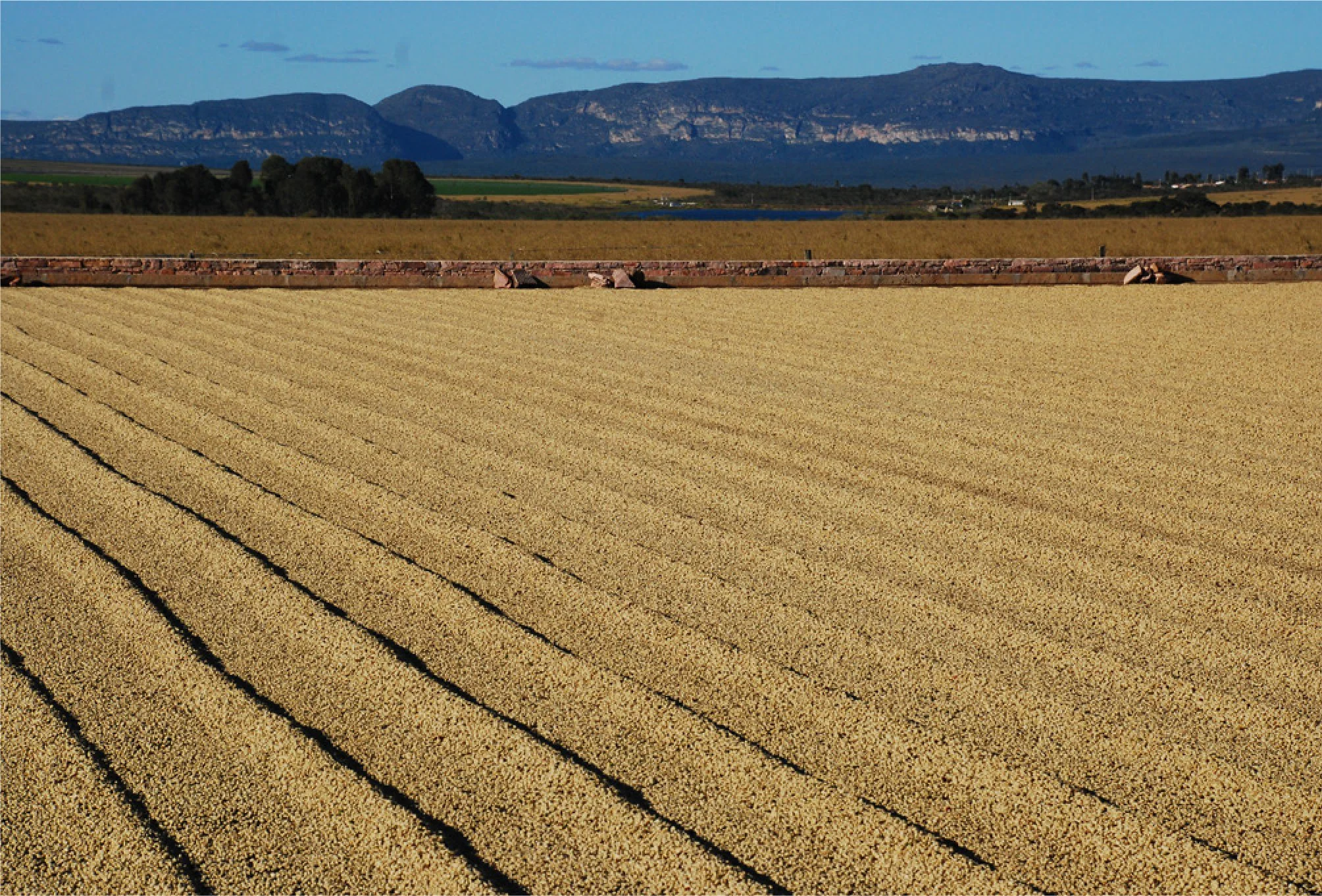Fazenda Progresso
THE HISTORY OF FAZENDA PROGRESSO began to be designed with the migration of part of the family from the Sul region to the Nordeste of Brazil. In 1984, the family acquired a property of 800 hectares in the municipality of Ibicoara, in Bahia, at the center of the Chapada Diamantina, considered one of the ecological paradises of the country and recognized for its natural exuberance and agricultural vocation. In the 80s, crops such as soya and wheat were implemented. Later, in the 1990s, the English potato. To diversify the activities of the company, in 2005, the coffee project was initiated.
The coffee areas are cultivated at an average altitude of 1 150 meters. This altitude has a fundamental role on the final quality of the grains, as the average temperature range of 10 degrees Celsius, with hot days and cold nights, favorable ideal condition for the maturation and incorporation of natural sugars.
Fazenda Progresso produces, on average, 20 000 bags of grains/year but the expectation is that the volume rises to 40 000 bags in 2017. The Arabic coffee varieties cultivated are Catauí 144 Vermelho and Topázio (Amarelo). Eighty percent of the harvest is exported to more than ten countries and the rest is commercialized in the internal market, mainly in Bahia.
As the focus of the property is the production of hulled cherry coffee, the company reaps 60% to 70% of its harvest manually. After the selective harvest, the coffee is processed by wet method, in which different types and qualities of grains are separated, washed, hulled and the mucilage removed, before they proceed to the drying. Drying is done in two stages. The first needs for the coffees to stay for 24 hours in the cement yards, exposed to the sun and wind. At the second stage, the coffee is removed from the yard and put in mechanical dryers.
Once dry, the coffee is ready to be tasted and classified. The batches are analyzed by a “taster”, that attributes the coffee quality notes. Then, the coffee is taken to the storage granary, where it will stay with the hull until the moment of beneficiation and shipping. The beneficiation consists in hulling the coffee, separating the grains by size and removing the ones that present a defect. This whole process is done by stateof-the-art equipment.
The altitude cherry coffees produced in the Chapada Diamantina are extremely aromatic and consistent, with emphasis on the floral sweet aromas. They have a silky and delicate body, with a balance between acidity and natural sweetness. You will find citric and chocolate notes, with shades of caramel. In October 2015, the farm was one of the winners of the renowned “Cup Of Excellence Brazil” competition.
With the mission to offer the national market differentiated coffees, Fazenda Progresso opened its own roasting to industrialize only the best batches of each harvest and acts in the segment of special coffees, adding value also with the constant practice of traceability and sustainability. The coffee of the property is represented by the brand “Latitude 13 Cafés Especiais”, in reference to the geographical location of the production and the “terroir” attributes.





